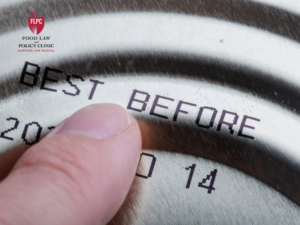Written by Oliver Brown, former FLPC clinical student and president of the Harvard Food Law Society.

This April, I attended the Food Law Student Leadership Summit (FLSLS) in hopes of broadening my knowledge of emerging legal issues in food law. I came to law school with an interest in food and agriculture reform. Through my participation in the Harvard Food Law & Policy Clinic, I was able to translate that passion into practical tools for advocacy. FLSLS offered a unique opportunity to further develop that skillset alongside professors, practitioners and students from around the country.
Hosted at Georgetown University Law Center, Washington D.C. was an ideal setting to tackle the public policy and regulatory issues at the heart of food law. Experts like Laura MacCleery and Ricardo Carvajal shared how administrative reforms are enacted and offered insights into legislative advocacy. In a powerful keynote, Navina Khanna, Director of the HEAL Food Alliance, outlined her organization’s comprehensive Platform for Real Food—a roadmap towards a more sustainable food economy. With so many knowledgeable voices in conversation, the outlook for that vision felt a little more hopeful.
Despite the incredible panels and seminars throughout the weekend (David Vladeck’s nerve-wracking lecture on deceit in food marketing was a particular highlight), I was most inspired by the network of passionate food advocates in attendance. It was an incredible opportunity to connect with other aspiring lawyers interested in this practice area. Hailing from law schools nationwide, students came with unique backgrounds and career goals. With food law touching so many legal disciplines (from labor, to intellectual property, to environmental sustainability), each participant brought their own perspective, and weighed how particular policies might impact the issues they cared about most. It was fascinating to see where our interests aligned and where they were in tension. Since the summit, I’ve developed a better understanding of the opportunities for progress in food system reform. I can identify points of collaboration, between farmers and animal-rights advocates, between commercial producers and food-waste NGOs. And most importantly, I have partners I can call on as we work towards meaningful change.

Health Law & Policy, Commentary
Cuts to the Federal Workforce and Medicaid: What’s Happening and What Can Advocates Do? – Health Care in Motion
March 12, 2025